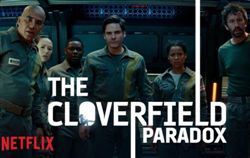Following the events of Captain America: Civil War, where the King of the secretive king of Wakanda was killed, T’Challa (Chadwick Boseman) takes on the role of king and the Black Panther, aided by four powerful women, his technologically gifted sister Shuri (Letitia Wright), his spy girlfriend Nakia (Lupita Nyong’o), the loyal general Okoye (Danai Gurira), and his mother (Angela Bassett). Soon after his coronation challenge, he is informed that Klaue (Andy Serkis), a vibranium smuggler and murderer has resurfaced. The pursuit of Klaue will bring T’Challa into contact with CIA agent Everett K. Ross (Martin Freeman) as well as Killmonger (Michael B. Jordan), an angry, skilled killer with a claim on the throne.
You can’t separate the film from the cultural event. Black Panther is the first Black blockbuster (and no, Blade does not count). It has a brave, noble Black hero, supported by a group of strong, equally noble Black women. It brings the style of Afro-futurism to the screen; Wakanda is an African country that was never colonized, so the culture, the social customs, the décor, the fashions, the music, and the traditions are what might have been if Europe had kept its grubby hands to itself. Black children will now grow up with a powerful icon who looks like them, and White children will see other possibilities in the world. This is all important, making Black Panther an important film.
And it needs to lean heavily on that importance, because without it, it is just OK. It’s a nice action film. It’s part of the MCU so it was going to be good, and it is, but its cultural significance is the only reason to ever call Black Panther great. As I said, this is an MCU film, so don’t take my criticisms as condemnation. It is miles better than Justice League or X-Men Apocalypse or, if we want to walk outside of superhero flicks, The Fate of the Furious. It’s a good action picture, and maybe that’s all it could be in order to be a cultural moment. Perhaps everything had to be simple and clear to be what it needed to be. Perhaps. Still, I’d have liked a lot more depth and emotion. The major heroes all have great potential, but because there is so many of them, we don’t get to know any of them (we are told that Nakia is/was T’Challa’s girlfriend, but shown nothing about it and barely shown who she is). Maybe in the next picture we’ll get more—the women deserve a whole lot more screen time. Ryan Coogler is not Joss Whedon; he doesn’t know how to flesh out 5 or 6 characters with only a few lines. So by the end I liked T’Challa and the four women, but know them only well enough that the term “the four women” is fitting. And they are the best thing about the film.
Killmonger also had potential. He had the high ground both philosophically and personally, which should lead to an interesting morally gray conflict, but we didn’t get that. Instead Killmonger has “evil murdering psychopath” tacked on to his character so it is very clear who is right and who is wrong. Again, perhaps that is how it had to be, but it isn’t interesting. And Killmonger leads to a second major problem—he has a legitimate claim to the throne. His goal is to challenge for the throne, so what was the point of the whole first act? He didn’t have to do anything evil or violent. He could have just walked up and introduced himself. But then we wouldn’t have gotten Black Panther riding on a car roof for the trailer (that product placement has to go somewhere).
As for the action, it is the worst of any MCU film. It isn’t a miserable failure (Again, I’m looking at Justice League), but the framing is off more often than not, the camera is generally too close, and most of the time nothing has weight. The chase reminded me of Quantum of Solace. In the “large” battle scene (I guess Wakanda isn’t all that big after all), the camera never tells us where we are. People hit people. People fall down. Who knows where anyone is or who is winning. Plus we have a cavalry-deus ex machina, which is always a cheap out in a script.
So we have a dumb but enjoyable action flick, elevated by its cultural significance. The characters are mostly good if underdeveloped, the style is fantastic if filmed in a mediocre fashion, the dialog is acceptable if a bit too serious and mostly forgettable, the action is above average if nothing special, and the plot is workable as long as you weren’t showing up for the story. Black Panther is another success for Marvel and Disney, but Marvel and Disney have raised the bar for superhero movies, and Black Panther slips under it. Well, I expect to see a deserved Oscar nomination for costume design. That’s something.


